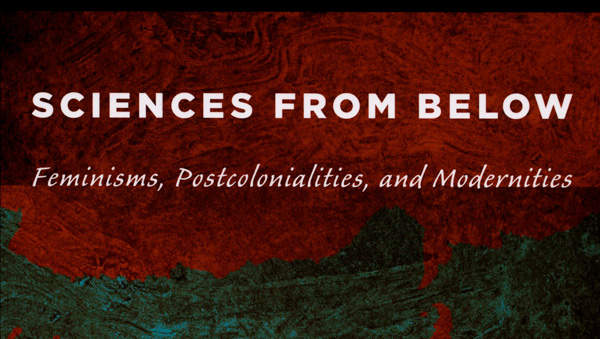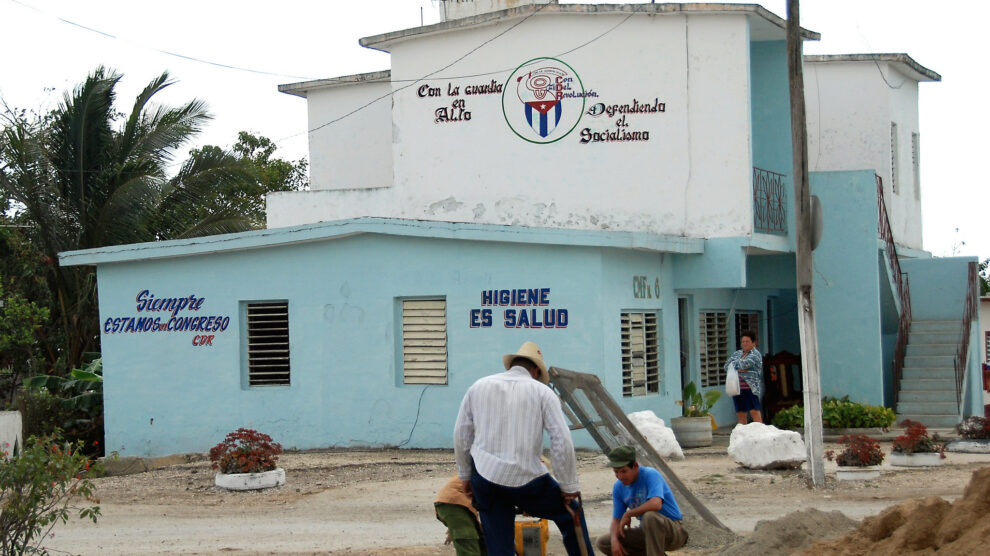Meet the Contributors to “The Return of Radical Science”
Volume 22, number 1, The Return of Radical Science
Ben Allen
is a biologist, educator, musician, and organizer based in Knoxville, Tennessee. He currently serves as the elected Secretary of Science for the People. As a scientist, his passion is integrating systems biology and ‘omics into bioremediation and waste-to-energy studies. As an organizer, he is working towards a just transition from fossil fuels towards a sustainable future in Appalachia. You can follow him online at @bioben_tn on Twitter.
Christine Andrews
is a software engineer and worker-organizer in the San Francisco Bay Area. She’s been organizing in the tech industry for about a year and working in it for several.
Colleen Baublitz
is an organizer in the Graduate Workers of Columbia (GWC-UAW Local 2110) and a member of the Science for the People NYC chapter and Labor Working Group. She is a third year Ph.D. student in environmental science, conducting research along the intersection of air quality and climate change. She is committed to bottom-up organizing for a stronger labor movement and a radically just future.
Katherine L. Bryant
Katherine Bryant is a Marie Skłodowska-Curie fellow at the Donders Institute for Brain, Cognition, and Behaviour at Radboud University in Nijmegen, the Netherlands. Her master’s research focused on the molecular genetics of mammalian evolution; she later specialized in evolutionary neuroscience during her PhD. Her current research examines the organization of white matter in the brains of humans and other primates using noninvasive MRI scans in order to shed light on the evolutionary origins of human cognition and behavior.
Center for Interdisciplinary Environmental Justice (CIEJ)
is a San Diego-based space for integrating scientific approaches with the resistance and liberation movements of grassroots and Indigenous communities at the forefront of environmental racism. They approach environmental justice through feminism, decolonization, anti-racism, and intersectionality. Working as accomplices to communities in resistance, they organize to support struggles, expand solidarity networks, and redirect scientific tools and resources to empower movements fighting for dignity and autonomy. They embody a wide variety of identities, disciplines and skillsets. They engage with multiple realities, worldviews, cosmovisions and strategies committed to survivance and the creation of “a world where many worlds fit.” Find them at the-ciej.org and and join their network.
Zachary Eldredge
is a PhD candidate in Physics at the University of Maryland, College Park, where he researches quantum information theory. He is active in Graduate Student Government and is a member of the campus pro-graduate student labor organization Fearless Student Employees as well as the UMD chapter of Science for the People.
Ingrid Feeney
is a PhD student in Sociocultural Anthropology and Environmental Studies at the University of California, Santa Barbara. She holds a BA in Linguistics from CUNY Brooklyn College and an MA in Anthropology from the University of Chicago. In addition to researching the agroecological transition in Argentina, Ingrid is a singer and a volunteer for the Nantucket Marine Mammal Association stranding response team.
herb fox
was a founder of SftP, or more precisely initiated the transformation of SESPA (Scientists and Engineers for Social and Political Action) into Science for the People. Using organizing skills developed in political and trade union activism that began in 1944 at age fourteen when he circulated petitions against atomic bomb tests, he brought together the forces that created the first interventions at the AAAS and the eponymous magazine. After leaving SftP, herb continued his activism by forming study groups, organizing strikes, and struggling within the trade union movement. In the mid 1990s he co-founded Agitarte, a radical street theater, puppet, and hip hop group, and the adjunct union at UMass Lowell in 2010. In 2014 herb retired to resume writing music, his first occupation.
Michael Harris
is a mathematics professor at Columbia University. He was involved with SftP in the 1980s as an organizer of the Science for Nicaragua program. He taught in Paris for more than twenty years at Université Paris-Diderot; before that he taught at Brandeis University. He has also held visiting appointments at the Steklov Mathematical Institute in Moscow, Bethlehem University in Palestine, and the Institut des Hautes-Études Scientifiques in France, among other places. In France he was a founding member of AURDIP (Association des universitaires pour le respect du droit international en Palestine). His blog is mathematicswithoutapologies.wordpress.com.
Caitlin Myers
is a writer, educator, and community organizer living in Knoxville, Tennessee. Caitlin currently works with the Southern Connected Communities Project to design and expand community-owned rural broadband networks in East Tennessee. Caitlin writes as a freelance journalist, poet and playwright. Caitlin covers environmental justice, rural infrastructure, secret Southern histories, and building community power through infrastructure ownership and the democratization of knowledge. Her work can be found in Scalawag Magazine, 100 Days in Appalachia, and on stage around Knoxville. Find her on twitter at @stopitkatie.
Mariquit Rosete Lu
is a medical student at the University of Miami Miller School of Medicine in Florida. She aims to pursue a residency in Obstetrics and Gynecology. She was born in the Philippines, raised in Indonesia, and educated in the S. Prior to her medical studies, she received a master’s degree of public administration in international health policy at New York University. Her career interests include global reproductive health policy and anti-racism training in medicine. Currently, she serves on the leadership team of Reproductive Health Advocates, a student-led organization that helps patients access desired reproductive health services in Miami, Florida. She also serves as a co-founding member of the non-profit anti-racism organization White Coats 4 Black Lives: whitecoats4blacklives.org.
Syed Raza
is the Research Analyst and Project Manager at the New York City Department of Health and Mental Hygiene, where he focuses on developmental delays, congenital disorders, and disabilities among children, particularly autism. He completed his master’s of Public Health degree from Columbia University and will start his doctoral studies in sociology at the University of Texas at Austin this fall. He has previously researched the unyielding opioid epidemic during his graduate studies, and the enduring environmental and occupational health struggles in central Appalachia during his undergraduate studies at the University of Kentucky.
R.K. Upadhya
is an engineer, writer, and organizer in the San Francisco Bay Area. He is a member of Tech Workers Coalition and the Industrial Workers of the World.
Helen Zhao
is a PhD student in philosophy at Columbia University. She organizes for and serves on the bargaining committee of GWC-UAW 2110, the union representing Columbia undergraduate and graduate teaching assistants, research assistants, graders, and preceptors. Her current research concerns topics in feminist philosophy of science, such as critiquing the view that science is apolitical. She has interests in the history and philosophy of science activism and the science of eating disorders.
Zach Zill
is an energy efficiency and building science engineer living in Brooklyn, New York. He is an active member of the NYC chapter of Science for the People.





